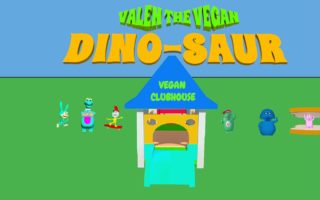The Science of Sleep – What is it all about?
We spend a third of our lives doing it, and a large proportion of our lives talking about it. We either have too much or too little, substituting it with caffeine and cookies, and it can either get us off to a great day or define it as a bit of a downer. Yes; sleep really is an important part of our lives. But what is ‘sleep’? What does it mean? And why is it necessary? We probe a little deeper to find our more…
First things first; why do we sleep?
It might surprise you, but it is a question that has baffled scientists for centuries. The truth of the matter is – no one is really sure. Some believe it is a chance to recuperate from your daily activities – though the amount of energy saved in eight hours of sleep is only 50kCal – equivalent to a single custard cream. We do however need to sleep to maintain normal levels of cognitive skills (speech, memory, and ‘thinking’), so at best, we know it plays a significant role in our brain development.
So, what would happen if we didn’t sleep?
Whilst we don’t fully understand the ‘why’, the impact of what happens when we do not sleep is clear.
If you’ve ever pulled an all-nighter or suffer from bouts of insomnia, you would be familiar with the grumpy, groggy, and irritable feelings that ensue. Our concentration levels are lowered, and with 17 hours of sustained wakefulness your body is functioning similarly to a blood alcohol level of 0.05% (two glasses of wine – the legal drink driving limit in the UK). Lack of sleep has also been attributed to a lack of rational judgment and penned to disasters such as Chernobyl and the Challenger shuttle explosion.
On top of the mental and emotional affects, lack of sleep affects our physical health – attributing to high stress levels, high blood pressure and weight gain.
Suffice to say – sleep is pretty crucial in our lives.
What happens when we sleep?
When we get our heads down for a bit of shut eye, we actually go through two phases of sleep, REM (Rapid eye movement) and non REM; both are split into further sub categories:
Non REM:
- Stage One: Light Sleep
This is the stage where you are half awake and half asleep. Expect some slight twitching as our muscle activity slows down, and as it is very light sleep – we can be awakened very easily.
- Stage two: True Sleep
Breathing patterns and heart rates start to slow down.
- Stage three and four: Deep Sleep
During stage three, the brain produces high amplitude and low frequency brain waves, with breathing and heart rates and their lowest levels.
- Stage four is then characterized by rhythmic breathing and limited muscle activity. Waking at this stage can result in grogginess and a few minutes for your body/mind to adjust. It is also the time that night terrors, bed wetting or sleepwalking can occur.
REM
- We have around three to five REM episodes of sleep per night. Although we aren’t conscious, the brain is incredibly active – even more so than when we are awake. This is the time when most dreams occur. Our eyes dart round (giving REM its name) and our breathing and blood pressure rise, though our bodies are effectively ‘paralysed’ thought to prevent us from acting out our dreams.
The cycle between REM and Non REM continue to repeat several times through the night until naturally (or unnaturally, due to alarm clocks!) waking.
How much sleep do we need?
Like most things in life, the amounts of anything we need; it can vary from person to person. People like to spend anywhere between 5-11 hours in bed, the right time to ensure they are wide awake for the day ahead. Even animals have varied sleep needs; with Pythons opting for a snooze-fest of 18 hours a day, with a Giraffe only getting around 2!
Written by Sarah Mitchell. Sarah is a freelance writer writing for http://www.boothsfurnitureltd.co.uk/ with a passion for interior design, mental health and always on the look out for her next challenge.


